Meet our students and alumni
Student Ines, alumna Jenthe and teaching assistant Kim
about the Bachelor Social-Economic Sciences
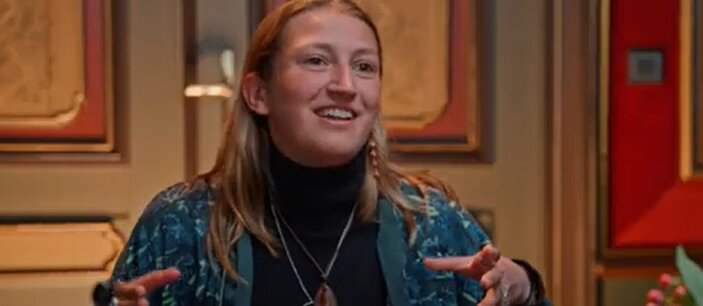
The English-language Bachelor Social-Economic Sciences was organised for the first time in academic year 2021 - 2022. By now, the first SES students have graduated. Arturo is one of them.
Alumnus Arturo about the Bachelor SES
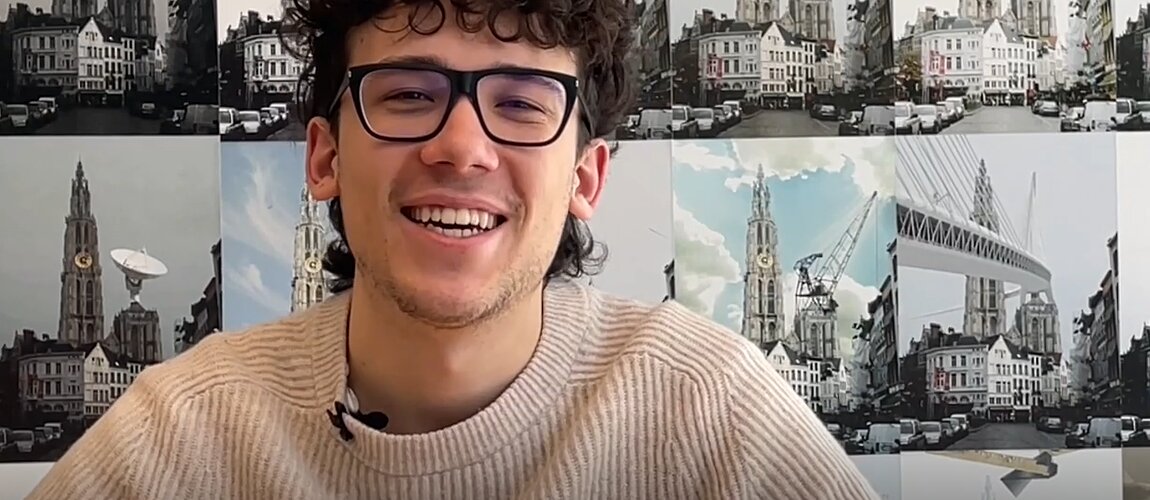
Alumnus Arturo about life in Antwerp as an (international) student
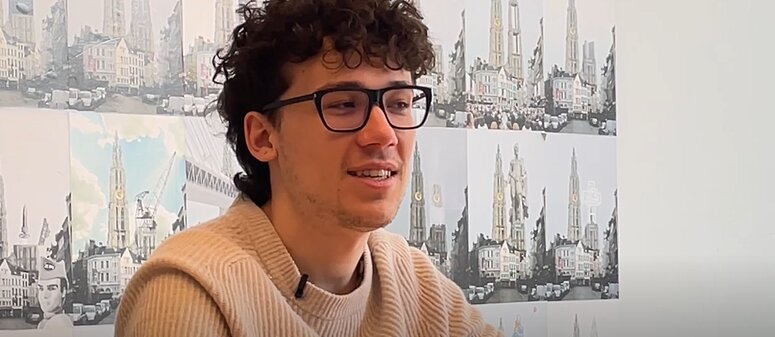
However, the University of Antwerp has been offering the Dutch version of this programme for several years now. Read some of our alumni stories of the Dutch-language programme Social-Economic Sciences below.
Meet our Social-Economic Sciences alumni!
Data based on the Dutch programme

According to Kamal Kharmach, SES is one of the best programmes at the University
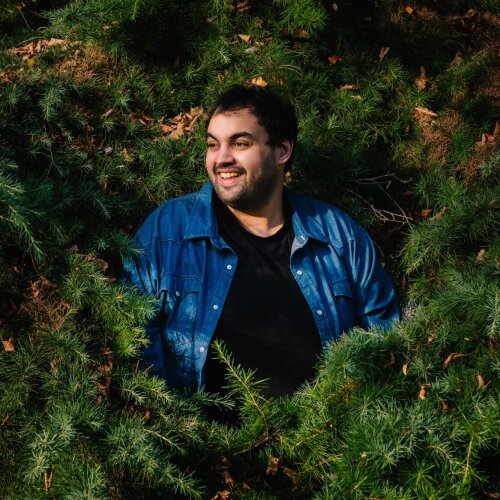
Kamal Kharmach – alumnus, lecturer, entrepreneur and stand-up comedian, has big dreams. He wants to change and improve society. Humor is not an goal as such, but a means to achieve his goals. Before he started his television career, he studied social-economic sciences, became an assistant for economics professor Jan Bouckaert and started a PhD.
“I’ve been fascinated by economics ever since I was a child, but I didn’t see myself working in a traditional corporate context. As soon as I discovered the Social-Economic Sciences programme, I was sold: it was exactly what I was looking for.
I think social-economic sciences is one of the best studies at the university. Graduates are broadly educated and versatile. The multidisciplinary nature of the course has helped me a lot throughout life. I am able to understand thinking patterns of all kinds of stakeholders and analyze quantitative data at the same time. I like being a generalist instead of a specialist.”
Humorists are excellent marketers
“During this year’s end-of-year conference (eindejaarsconferentie), I will be more critical, more opinionated than ever. Some things that happened 2020 are unacceptable to me. Our Belgian politicians eased corona measures while other countries made them stricter. The situation for elderly people in residential care homes was inhumane at times. As an artist, for the first time I feel the need to speak up. After all, humor is a form of free speech, and also an expression of a healthy society that can put things into perspective.
Humorists are excellent marketers. Humor and entrepreneurship are far from separate worlds. The essence of both is to create a certain emotion in a very diverse group of people. You have to know your target group, both as a comedian and as an entrepreneur."
Read the full article in Dutch in the Magazine Universiteit Antwerpen
Sofie Gutermann is a Young Potential at Crelan
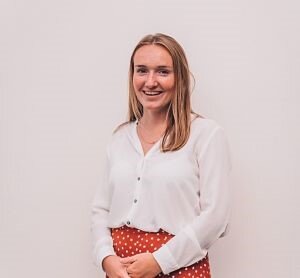
Sofie is 23 years old. Her friends would describe her as an enthusiastic, resilient person who will always find a way to achieve her goals.
“During my Master of Social-Economic Sciences at the University of Antwerp, I found myself fascinated by questions such as: "how can we make an organization healthy and profitable but also make the people who work there feel good and engaged?" That was when I realized I liked bridging people with organizations. I strongly believe people are the greatest asset of an organization. So after obtaining my degree at the UAntwerp, I decided to study a Master in Human Resources Management at Antwerp Management School.
Personal development
I was recently selected for the Young Potential Programme in HR at Crelan Bank. During 24 months, I will do a traineeship within three HR departments. At this moment I am working within the L&D department, in which I am responsible for several project such as creating a learning trajectory, analyzing data about learning activities, propagating the mission and vision, etc. Besides that, I also work on performance and change management projects.
I like working at Crelan because I really feel that I mean something in the organization. In short, I am truly grateful for my personal development journey where I have grown into a woman who knows what she wants. It was a journey in which I developed my future leadership style and became aware of who I am.
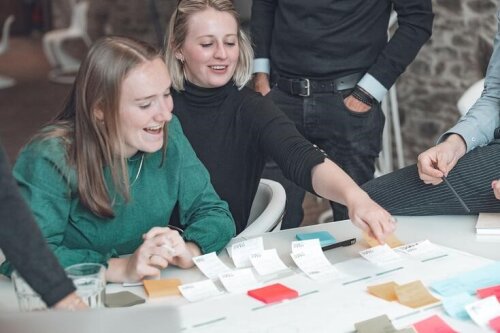
Read the full interview on the Antwerp Management School studentblog.
Arne Lahcen works at the European Space Agency (ESA)
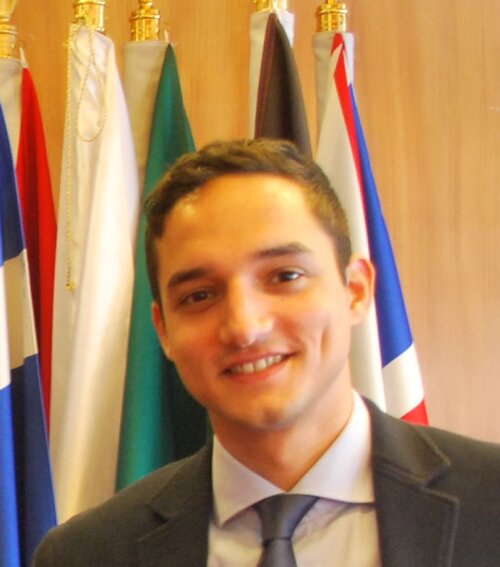
Arne Lahcen (alumnus Social-Economic Sciences, 2010) is Policy Officer at the European Space Agency (ESA) in Italy. ESA is active in nearly all fields within the aerospace industry, such as launcher development, solar system exploration, human spaceflight, telecommunications, satellite navigation, etc.
After completing his secondary studies, Arne wanted to find a study with sufficient social relevance, so he chose the Bachelor in Social-Economic Sciences at the UAntwerp. “That turned out to be a good choice for me. The programme focuses on interdisciplinary societal challenges and gives students the choice to focus on their specific area of interest.”
Arne then earned an additional Advanced Master’s degree in Space Studies at KUL, in collaboration with UGent. "Even as a child, I was very interested in space. The combination of these two programmes really set the future course of my professional career”.
Observing Earth
“I absolutely wanted to work in the aerospace sector, so I had to work my way in. I started as an intern in a small think tank on space policy (ESPI) in Vienna. A few years later, I managed to land a job in ESA . Currently, I work within the field of earth observation. We observe our planet, the way it changes and the impact humans have on it.
ESA as an organisation has a strong STEM focus, it mainly employs engineers and scientists. My background in socio-economic sciences enables me to bring a different perspective to my working environment. Moreover, the multilingualism that characterises us Belgians is a bonus in my international working environment.”
Roel Dom is an economist at the World Bank in Washington, D.C.
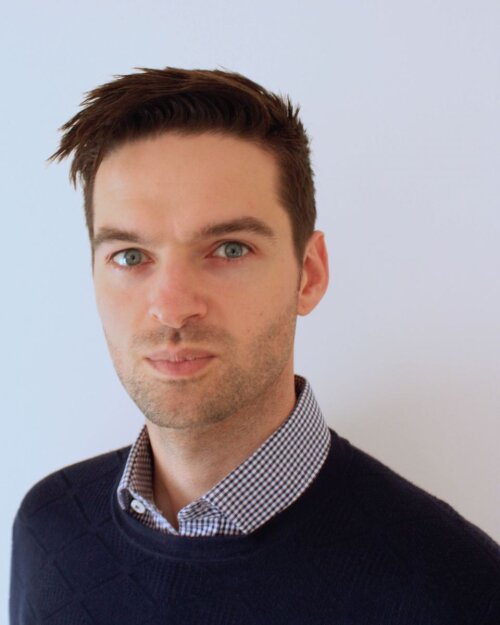
Roel Dom (Social-Economic Sciences, 2012) is a young professional and economist for the World Bank in Washington, D.C. The World Bank is an international financial institution that seeks to eradicate extreme poverty worldwide and to create shared prosperity in a sustainable manner. “As economist, I am part of a team that aims to find macroeconomic policy strategies to achieve those goals, together with our partners.”
A taste of everything
“They say SEW students are not always the best at choosing. In my case, that is true. After graduating high school, I needed a full year to decide what I wanted to study. After doing an AFS exchange to Peru I knew I wanted to work in development cooperation, but I wasn’t sure what basis I needed for that. Political science, sociology, anthropology, law, maybe economics? Coincidentally, I encountered the Social-Economic Sciences programme, where it seemed like you got a taste of everything. After that, I made up my mind quickly.”
“The study not only strengthened my reflex to think in a multidisciplinary way, but it also gave me the empirical basis and analytical skills to do so. Thanks to my solid foundation in economics, sociology and political science, I am able to work productively with experts from different fields, to translate ideas and to offer different perspectives. These skills are indispensable in a policy-oriented position.”
Wine and economics
I have many fond memories of my student days, such as the founding of the student association Socio Economica, or that one professor and his assistant who had the ability to tell us all about wine as well as about the state of the economy. But my best memory is my participation in an immersion trip from the University Foundation for Development Cooperation (USOS) to the Democratic Republic of Congo. That trip not only enabled me to immerse myself in a completely different culture, I also got to developed long-lasting friendships.”
First interview was a hit
After his studies in Antwerp, Roel obtained an additional degree at the London School of Economics and Political Science (LSE). “When I graduated, I sent out quite a few applications in London but as soon as I got my first interview, it was an immediate hit. I applied for a position as economist and was asked if my SEW degree had provided me with enough economic background knowledge. However, the combination of economics and social sciences intrigued the interview panel and after a discussion about the redistributive effects of monopolies, I landed my first job. So LSE opened the door but SEW sealed the deal.”
When I look back on my trajectory, I am thankful for all the opportunities that allowed me to explore different paths. Now, in my professional life, those opportunities enable me to work in a meaningful and impactful way.”
Abdel Bouddount is HR Business Partner at Mediahuis
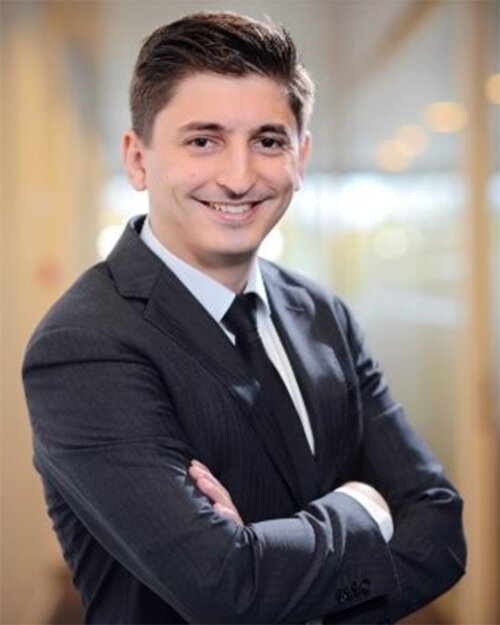
Abdel Bouddount is HR Business Partner at Mediahuis, the Belgian media company behind newspapers such as De Standaard and Gazet van Antwerpen. He is part of the HR Management Team, where he is responsible for a number of departments (Marketing, Finance, ICT, etc). His job entails inflow, throughflow and outflow, recruitments, exits, promotions and evaluations.
Abdel graduated in Social-Economic Sciences in 2010. “I chose this Bachelor’s programme because I was particularly interested in politics, sociology and economics. I liked the fact that you could put together your curriculum according to your interests.”
At home everywhere
“The institution pays a lot of attention to diversity. I joined a student association committed to helping underprivileged youth and youth with a migration background. The university always supported our cause. And not only that, that same diversity also showed in the variety of people I met. When you study SEW, you take classes with students from social sciences, economics,… You basically feel at home everywhere.”
After his studies, Abdel started working at Robert Half, where he recruited financial profiles. “External recruitment is often 80% sales and 20% recruitment. After 4 years, I wanted to pursue a broader HR function, so the next logical step was to work as HR project consultant. That way I was able to take on different projects and gain experience at various companies. My very first project was for Mediahuis. Three years later, they offered an opportunity I just couldn’t refuse. ”
HR as captains
The corona crisis has had major consequences on the HR sector. “Before, it may have seemed that the HR department operated more in the background, whereas now we are in the front line more than ever. Our role right now is not only to advise corporate levels but to help them devise strategies as well. The expectations are high, but at the same time there’s a lot of appreciation. We are facing a storm and HR now has to ensure that everyone stays in the boat. We are captains, now more than ever.”